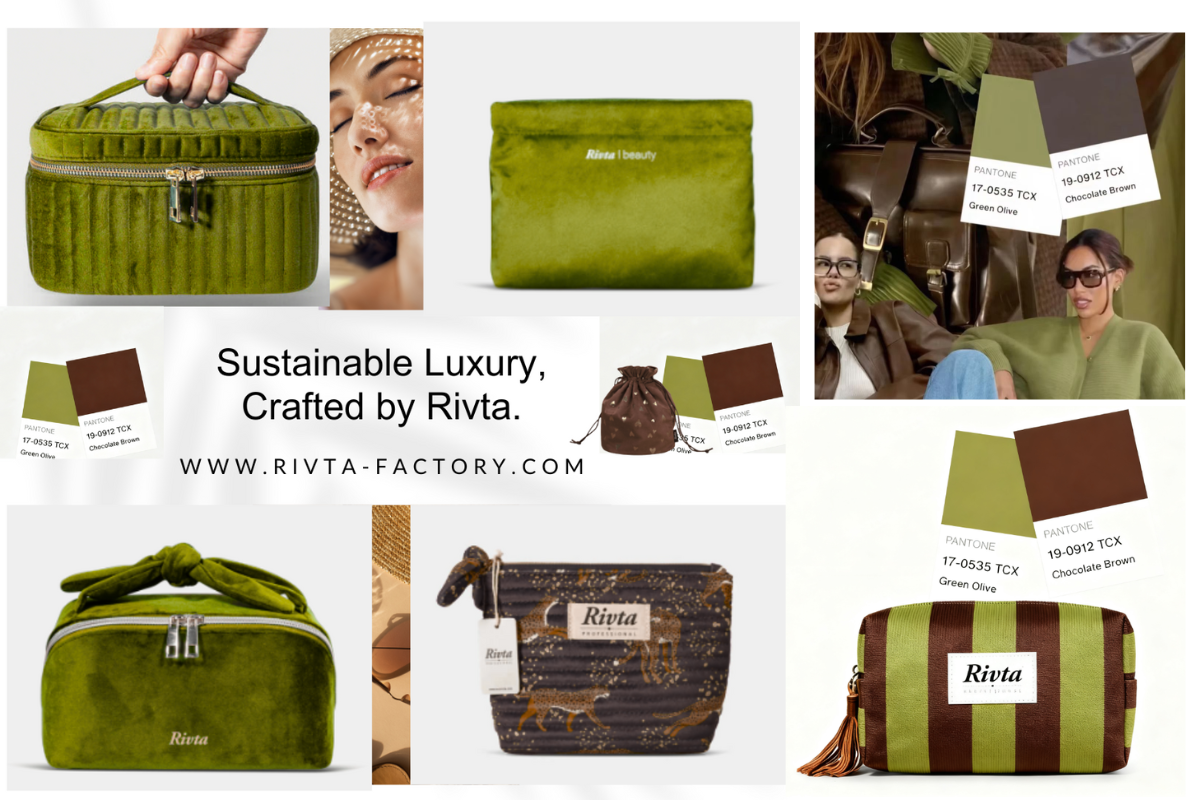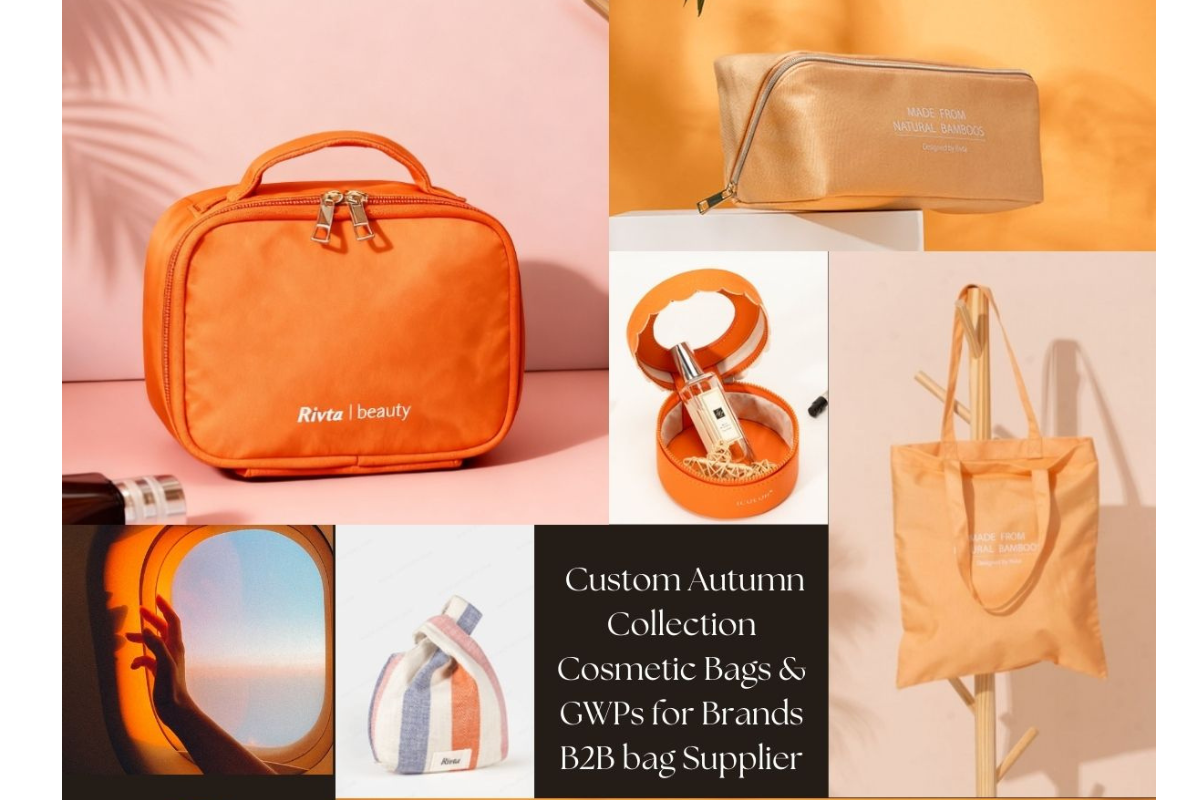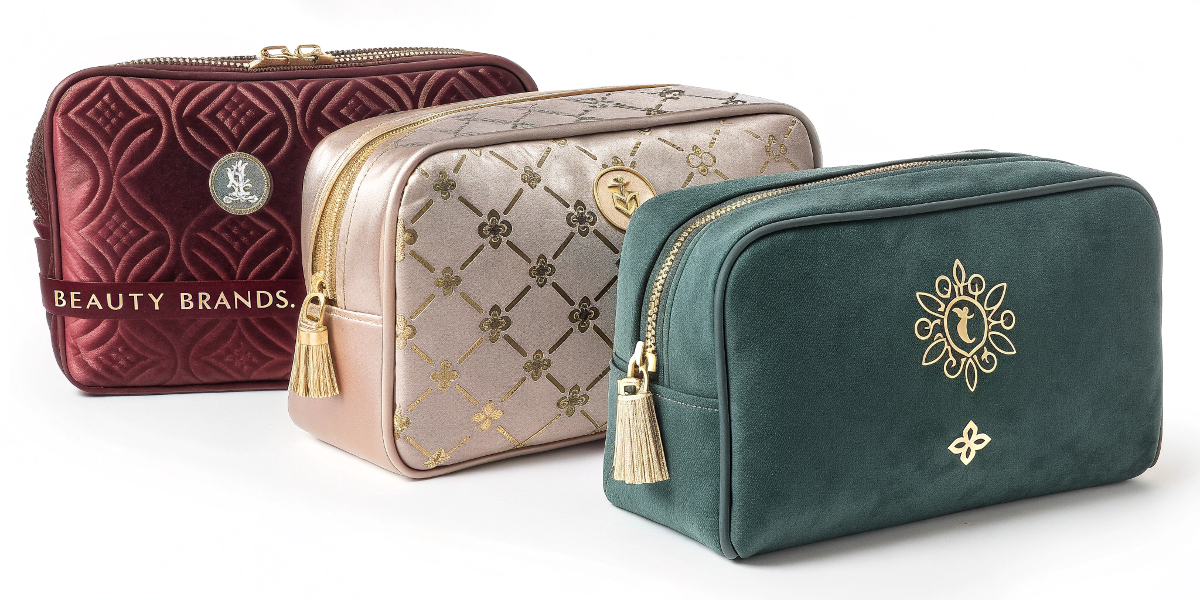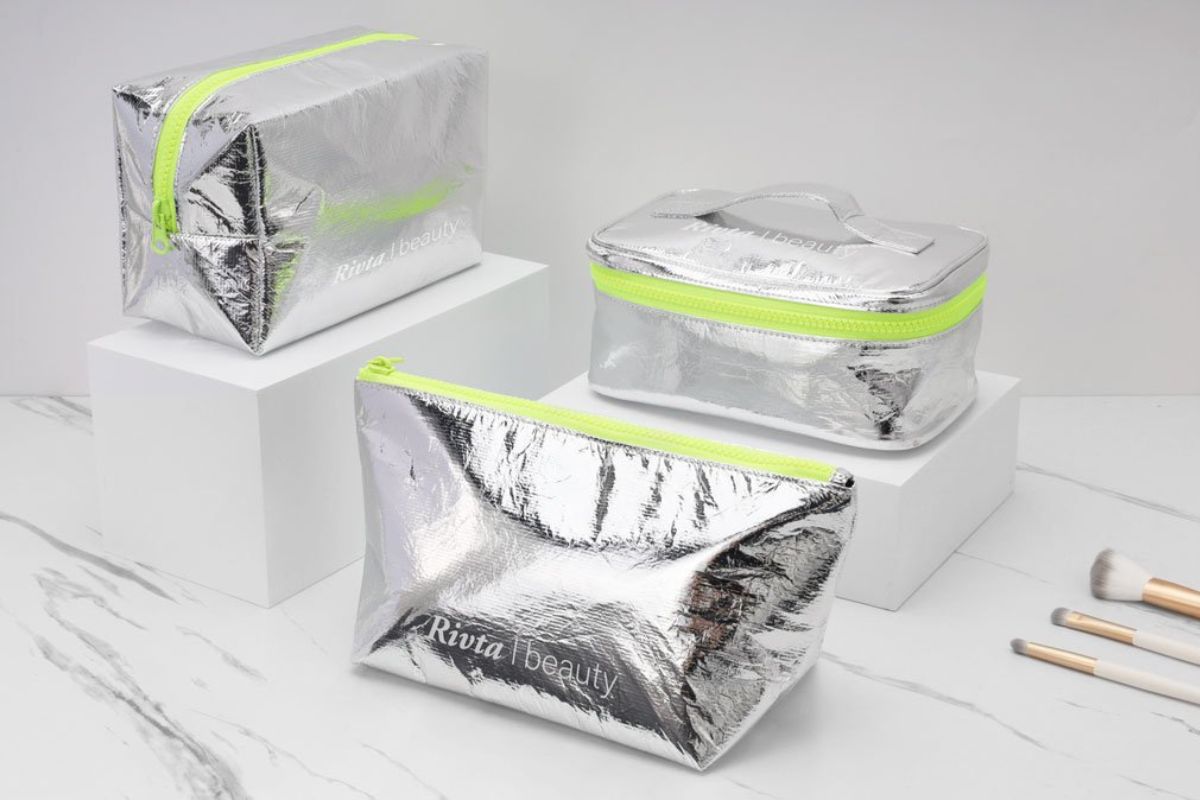How to Use Recycled Fabrics for Custom Cosmetic Bags
Sustainability is increasingly critical for businesses, and eco-friendly cosmetic bags made from recycled fabrics offer a strategic way to meet consumer expectations and regulatory requirements. This blog examines how recycled materials such as cotton, RPET, and Recycled PU can be used to create custom cosmetic bags that combine style, functionality, and environmental responsibility. Through practical steps, data findings, and customization strategies, we aim to guide brands in developing their next sustainable product line.

Why Recycled Fabrics Matter for Cosmetic Bags
The global demand for sustainable products is surging. Global demand for sustainable products is growing, with a 2023 NielsenIQ report showing 73% of consumers willing to adjust habits to reduce environmental impact and 66% ready to pay more for sustainable goods. In the beauty industry, eco-friendly cosmetic bags made from recycled fabrics reduce waste, lower carbon footprints, and appeal to eco-conscious consumers, offering brands a competitive edge in markets like the US and Europe.
Recycled fabrics also align with regulatory trends. The European Union’s Circular Economy Action Plan (2020) emphasizes reducing textile waste, while California’s Plastic Waste Reduction Act (2022) pushes for recyclable materials like RPET. By integrating recycled fabrics into your product line, your brand can stay ahead of compliance while enhancing its reputation for sustainability.
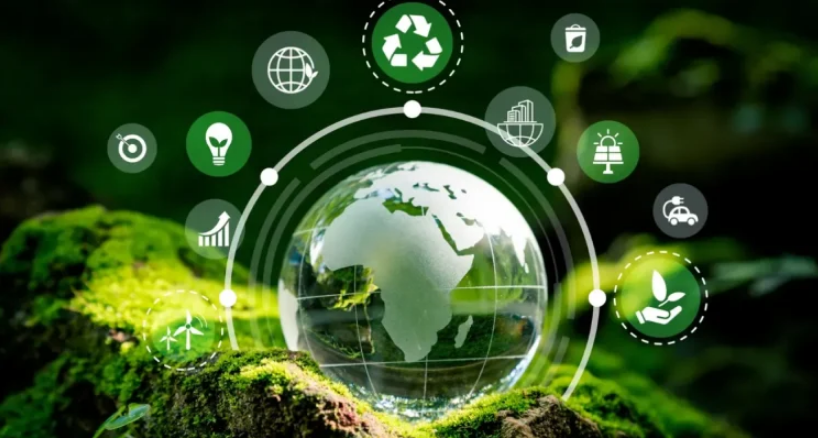
Understanding Recycled Fabrics for Cosmetic Bags
Recycled fabrics are derived from post-consumer or post-industrial waste, transforming materials like old clothing, plastic bottles, or textile scraps into durable, eco-friendly products. Here are three key options suitable for cosmetic bags, each with distinct properties:
Recycled Cotton: Sourced from discarded textiles, recycled cotton is durable, washable on a cool cycle, and ideal for embroidery or over-printing. It reduces landfill waste by repurposing garments, though it may have a speckled appearance unless dyed to mimic virgin cotton.
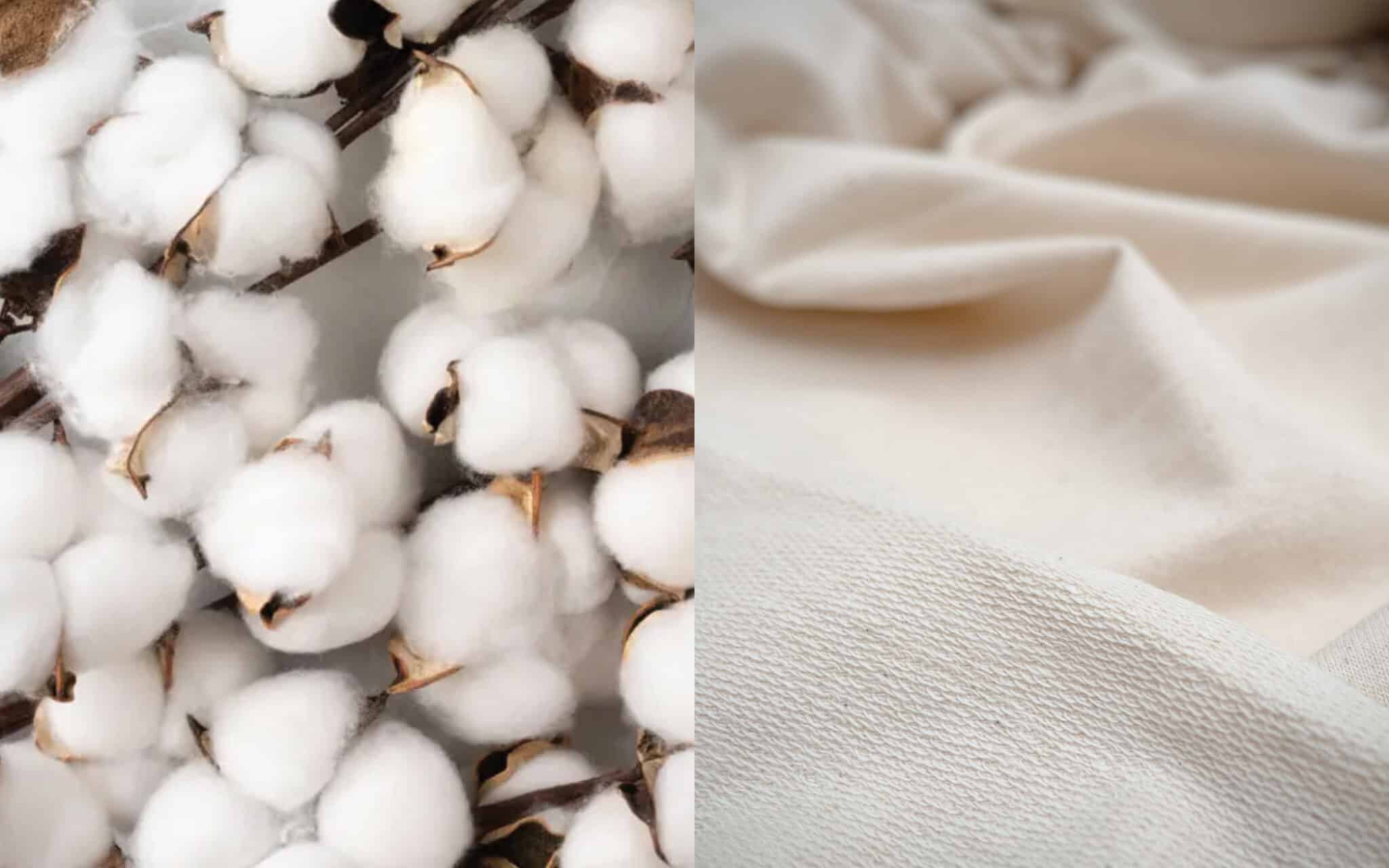
Recycled Polyethylene Terephthalate (RPET): Made from recycled plastic bottles, RPET is lightweight, durable, and recyclable (Resin Code 1). It supports full-color printing with glossy or matte lamination, perfect for vibrant, custom designs.
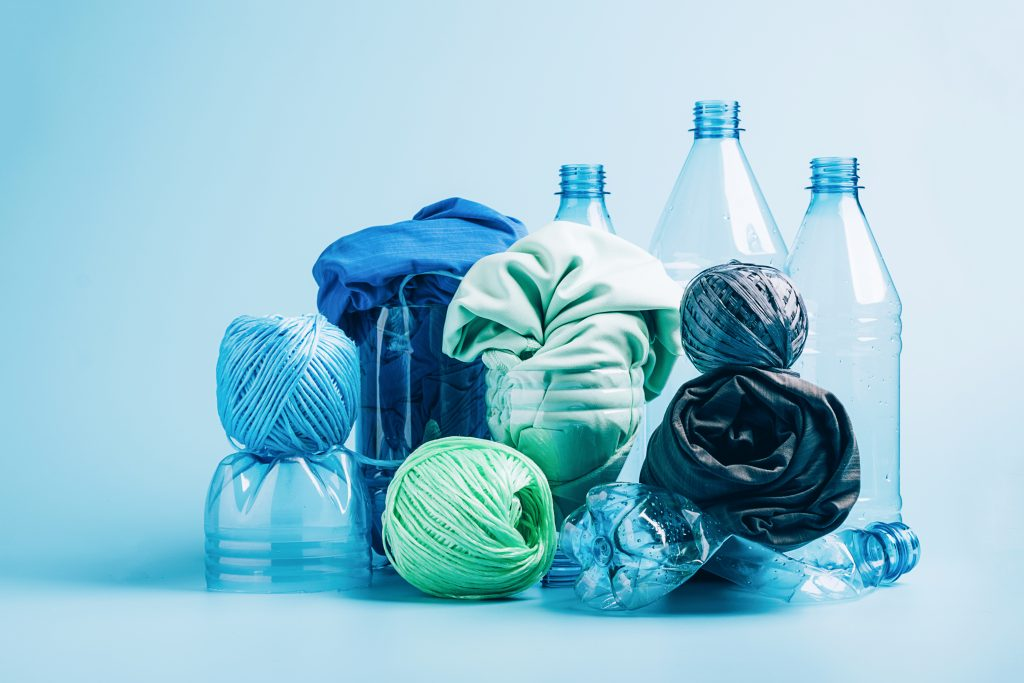
Recycled Polyurethane (PU): Recycled polyurethane (PU), sourced from post-consumer or post-industrial waste like manufacturing scraps or discarded footwear, is a durable, flexible, and water-resistant fabric ideal for cosmetic bags. Created through shredding or chemical recycling, it mimics leather’s premium look while reducing landfill waste and cutting carbon emissions by up to 40% compared to virgin PU (Polyurethane Recycling Council, 2024). Suitable for embossing, printing, and stitching, it enables high-end, customized designs for eco-conscious consumers in markets like the US and Europe.
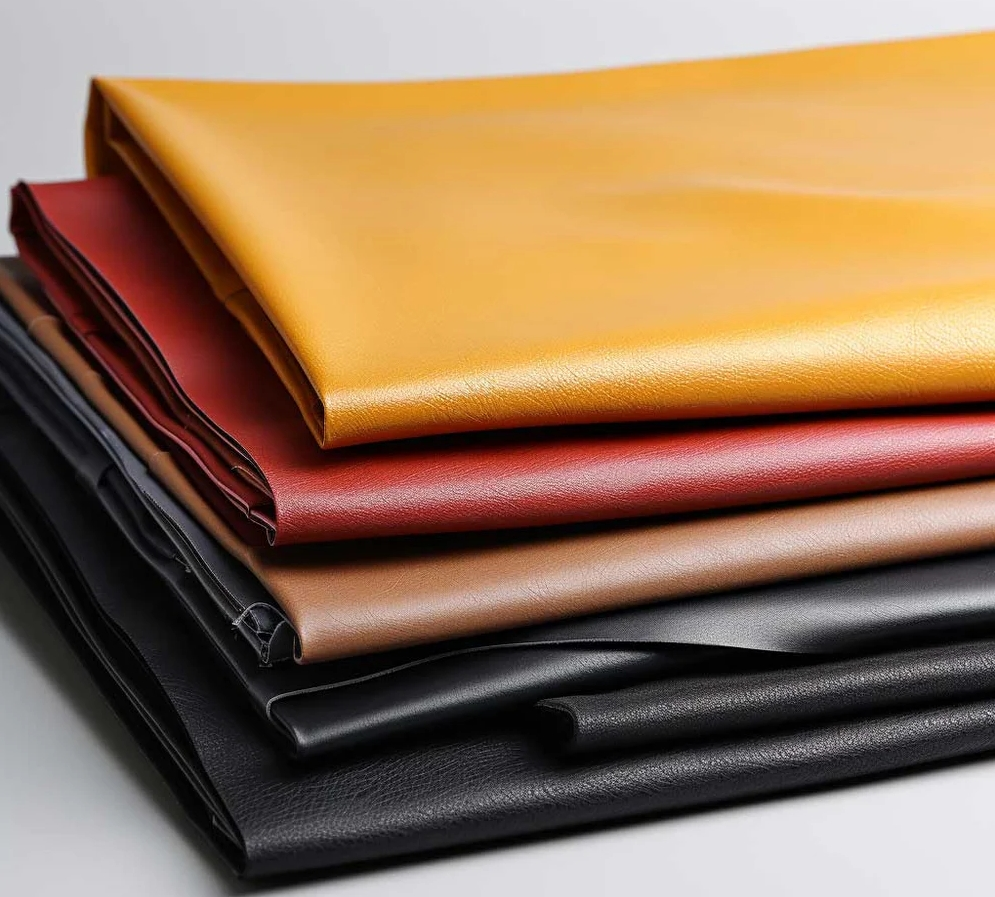
Sourcing Recycled Fabrics for Your Brand
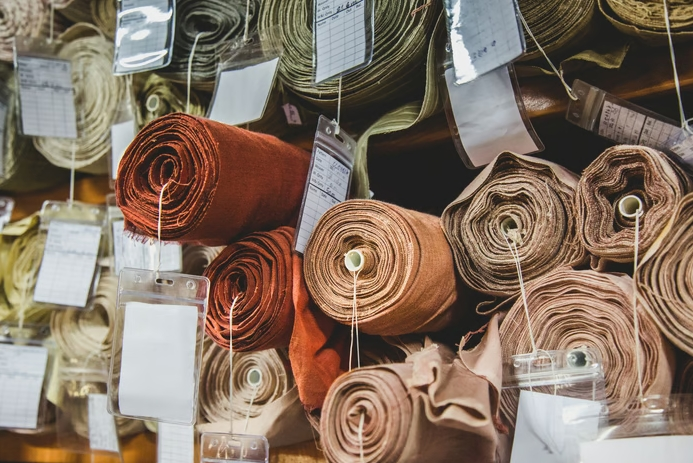
Sourcing high-quality recycled fabrics is the first step in creating custom cosmetic bags. Here are practical options for brands:
Thrift Stores and Textile Recycling Programs: For small-scale or prototype development, source recycled cotton from second-hand clothing or textile recycling initiatives. This is cost-effective and supports circular economy principles, ideal for boutique brands or limited-edition collections.
Eco-Friendly Fabric Suppliers: Specialty suppliers offer certified recycled cotton and RPET. For example, The Bag Workshop provides recycled cotton, though high minimum order quantities (MOQs) may apply for bulk production.
Online Manufacturers: For larger orders, partner with suppliers like Factory Direct Promos, which offer RPET and PP. These are often sourced from China, balancing cost and sustainability, but ensure suppliers adhere to ethical labor and environmental standards.
Repurposed Materials: Consider repurposing existing PP or RPET bags, though additional processing may be needed for sewing compatibility.
When sourcing, evaluate the environmental impact of collection, processing, and shipping. For instance, post-consumer recycled fabrics may involve higher transport emissions than locally sourced organic cotton. Partnering with a manufacturer like Rivta Factory ensures access to vetted, sustainable suppliers, streamlining your supply chain while maintaining eco-credentials.
Customization for Brand Appeal
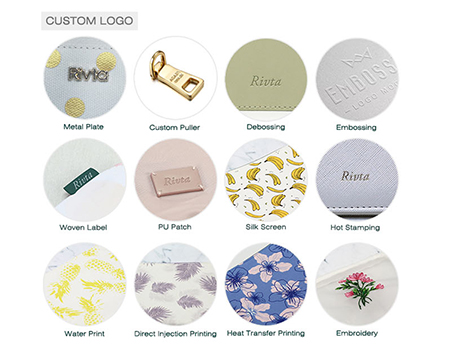
Customization elevates cosmetic bags from functional items to brand ambassadors. Here are key techniques:
Embroidery: Add logos, initials, or intricate designs using recycled cotton. This tactile, premium option enhances brand recognition, as noted by The Bag Workshop.
Printing: RPET and PP support screen printing, transfer printing, or 4-color process heat transfer. Lamination options (glossy or matte) create a high-end look, ideal for vibrant brand graphics.
Appliqué: Sew on recycled fabric patches for a unique, textured aesthetic, perfect for handcrafted or limited-edition collections. These techniques not only enhance aesthetics but also increase perceived value.
Market Findings and Opportunities
The global eco-friendly packaging market, including cosmetic bags, is expected to reach $317 billion by 2027, with a 5.6% CAGR (Statista, 2024). In the US and Europe, millennials and Gen Z drive demand for sustainable beauty accessories, with 62% favoring eco-friendly brands (Euromonitor, 2023). Recycled fabric cosmetic bags help brands meet these expectations and tap into this growing market. For inspiration, Altiplano’s handmade, fair-trade Guatemalan bags (8” L x 4” W) with embroidered designs highlight the aesthetic potential of recycled materials.
| Fabric Type | Durability | Washability | Customization Options | Environmental Impact |
|---|---|---|---|---|
| Recycled Cotton | High | Machine wash (cool) | Embroidery, printing, appliqué | Repurposes textiles, reduces landfill waste |
| RPET | High | Wipe clean, hand wash | Printing, lamination | Recycles plastic bottles, 59% less energy |
| Recycled PU | High | Wipe clean, hand wash | Embossing, printing, stitching | Reduces landfill waste, 40% lower emissions |
Why Partner with Rivta Factory?
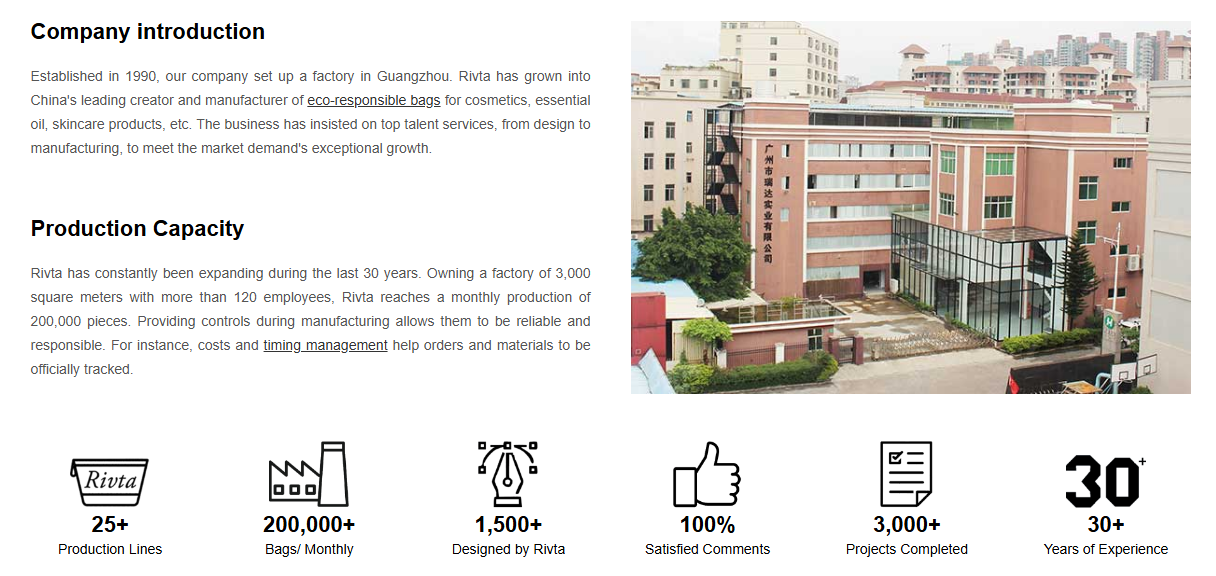
At Rivta Factory, we offer a seamless journey from design to manufacturing, specializing in eco-friendly cosmetic bags, jewelry boxes, and toiletry bags. Our expertise in sustainable materials, combined with advanced customization options, ensures your brand stands out in the competitive beauty market. We handle sourcing, prototyping, and production, minimizing your operational burden while maximizing sustainability and quality.
For brands aiming to launch or expand their eco-friendly product lines, Rivta provides:
Custom Design Services: Tailor bags to your brand’s aesthetic with embroidery, printing, or appliqué.
Sustainable Sourcing: Access certified recycled fabrics with transparent supply chains.
Scalable Manufacturing: From small batches to large-scale production, we meet your needs with precision.
Contact us at Rivta Factory to explore how we can bring your vision to life with sustainable, custom cosmetic bags.
Conclusion:
Using recycled fabrics like cotton, RPET, and Recycled PU for custom cosmetic bags is a powerful way to align with sustainability trends, meet consumer demands, and enhance brand value. By sourcing responsibly, designing thoughtfully, and customizing strategically, your brand can create products that are both eco-friendly and market-competitive. Rivta Factory is your partner in this journey, offering expertise and innovation to craft beauty accessories that resonate with today’s conscious consumers. Let’s redefine beauty with sustainability—reach out today to start your next project.
